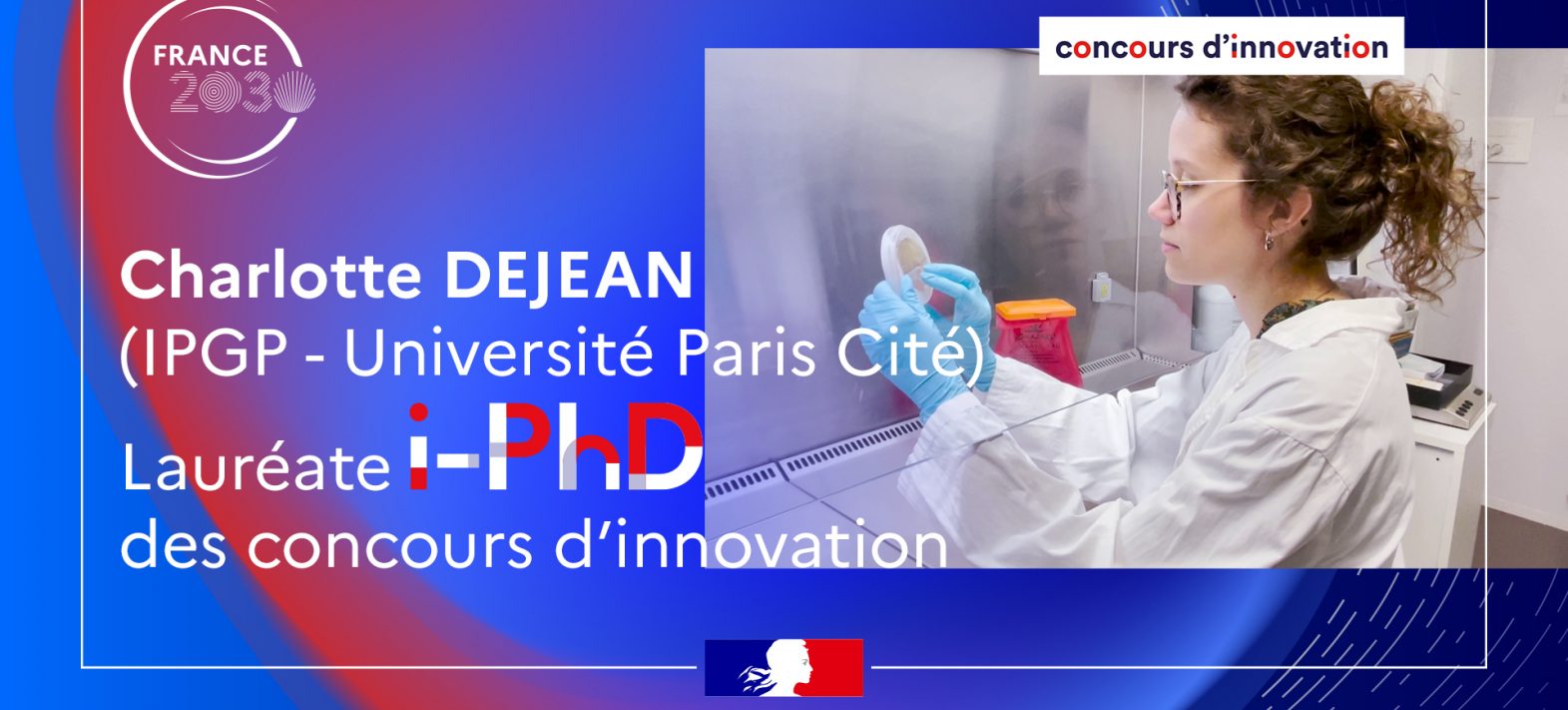Charlotte Dejean, winner of the 2023 i-PhD innovation competition organised by Bpifrance
Her project for bio-assisted extraction from mining waste was selected as one of the winners of the French government's i-PhD innovation competition, announced during a ceremony at the Théâtre du Châtelet on Tuesday 4 July. Charlotte Dejean, a PhD at Université Paris Cité and a young researcher in the Geomicrobiology team at the IPGP, will benefit from a support programme to help her bring her project to fruition more quickly.

Publication date: 05/07/2023
Awards and Distinctions, Press, Research
Related teams :
Lithosphere Organosphere Microbiosphere (LOMs)







